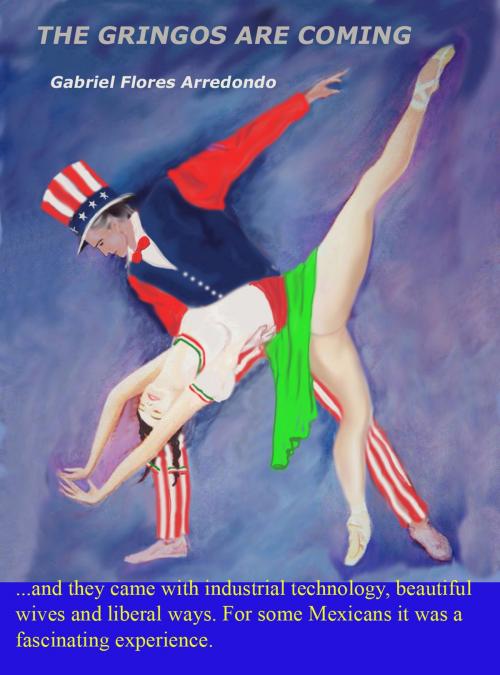| Author: | Gabriel Flores Arredondo | ISBN: | 9781483526096 |
| Publisher: | BookBaby | Publication: | April 15, 2014 |
| Imprint: | Language: | English |
| Author: | Gabriel Flores Arredondo |
| ISBN: | 9781483526096 |
| Publisher: | BookBaby |
| Publication: | April 15, 2014 |
| Imprint: | |
| Language: | English |
The Director of Engineering in Fundidora, a huge steel plant, announces that the whole department will disappear since a joint venture with Dillon Corp, an American engineering company, will be created to handle all future expansions of the Mexican steel conglomerate. The new company formed with American and Mexican personnel will be called Dillmex and invites the employees to join it. The basic idea is to have a Mexican working alongside with an American in all key positions, expecting the local to absorb the know-how, so one day Mexicans are able handle similar projects without foreign help. Most employees think the basic idea is a laugh and fear the move is designed to deprive them of their seniority rights. Some request to be transferred to some other positions within the plant. The gringos arrive and project managers are assigned parking spaces near the building. They reject them preferring to park in the general area. This initial democratic gesture surprise Mexicans used to flaunt any privilege provided by rank. Work starts and some gringos are liked and respected. In the first office party gringos arrive with their wives. One of them asks a secretary to dance with him and refuses to take no for an answer. Mexicans are shocked since a man with his wife present dancing with another woman is unheard of in town, at least in middle-class circles. Once recovered from the shock, bold Mexicans dance with some of their wives including the Director himself. This party creates a new more liberal atmosphere in and out of work. Interoffice sex occurs; something also unheard of, since all females, as a rule, are used to date only guys from other companies to avoid internal gossip. Some secretaries start dating unattached Americans. Progress in all projects is slower than scheduled by the Americans but faster than expected by Mexicans so everyone is happy. Everything is rosy for three years until the crisis came. The country is broke, unemployment soars and inflation reaches over a hundred percent. Mexicans are every day poorer and gringos, paid in dollars, have more purchasing power. The characters include: Jack, a religious workaholic; Tom, a happy man trying to integrate; Jennifer, his wife and everybody’s dream; James, a hard to please Brit; Quiroga, a boss trying to play god; Max, rough and ruthless, Alma, a very tall girl hired to impress the gringos, Sandy; a confused housewife; Jim, a regular Errol Flynn, Hildeberto and Norma, a liberal couple and Miguel, the story teller, economist, philosopher and sex advisor. This fast paced novel, based on fact, provides a deep insight on local and national politics, on the differences between Mexican and American customs and culture, as well as a detailed account of the Mexican crisis under the Lopez Portillo regime.
The Director of Engineering in Fundidora, a huge steel plant, announces that the whole department will disappear since a joint venture with Dillon Corp, an American engineering company, will be created to handle all future expansions of the Mexican steel conglomerate. The new company formed with American and Mexican personnel will be called Dillmex and invites the employees to join it. The basic idea is to have a Mexican working alongside with an American in all key positions, expecting the local to absorb the know-how, so one day Mexicans are able handle similar projects without foreign help. Most employees think the basic idea is a laugh and fear the move is designed to deprive them of their seniority rights. Some request to be transferred to some other positions within the plant. The gringos arrive and project managers are assigned parking spaces near the building. They reject them preferring to park in the general area. This initial democratic gesture surprise Mexicans used to flaunt any privilege provided by rank. Work starts and some gringos are liked and respected. In the first office party gringos arrive with their wives. One of them asks a secretary to dance with him and refuses to take no for an answer. Mexicans are shocked since a man with his wife present dancing with another woman is unheard of in town, at least in middle-class circles. Once recovered from the shock, bold Mexicans dance with some of their wives including the Director himself. This party creates a new more liberal atmosphere in and out of work. Interoffice sex occurs; something also unheard of, since all females, as a rule, are used to date only guys from other companies to avoid internal gossip. Some secretaries start dating unattached Americans. Progress in all projects is slower than scheduled by the Americans but faster than expected by Mexicans so everyone is happy. Everything is rosy for three years until the crisis came. The country is broke, unemployment soars and inflation reaches over a hundred percent. Mexicans are every day poorer and gringos, paid in dollars, have more purchasing power. The characters include: Jack, a religious workaholic; Tom, a happy man trying to integrate; Jennifer, his wife and everybody’s dream; James, a hard to please Brit; Quiroga, a boss trying to play god; Max, rough and ruthless, Alma, a very tall girl hired to impress the gringos, Sandy; a confused housewife; Jim, a regular Errol Flynn, Hildeberto and Norma, a liberal couple and Miguel, the story teller, economist, philosopher and sex advisor. This fast paced novel, based on fact, provides a deep insight on local and national politics, on the differences between Mexican and American customs and culture, as well as a detailed account of the Mexican crisis under the Lopez Portillo regime.















